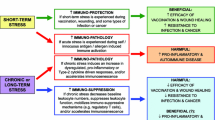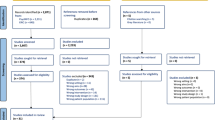Abstract
Mindfulness-Based Stress Reduction (MBSR) programs are offered worldwide. To date, there has been little discussion about for whom participation may not be appropriate. We reviewed the literature pertaining to attrition and adverse effects following participation in MBSR; relatively little was learned in this search. A few clinical trials from Mindfulness-Based Cognitive Therapy (MBCT) provide ideas concerning who may not benefit from this program and who is likely to drop out. There are some case studies of individuals who manifested various mental health issues following experiences with various forms of meditation, but often specifics are missing such that it is not known what type of meditation was practiced or if the individuals in question had previous psychiatric disorders or preexisting conditions that could predispose them to negative outcomes. While we could not provide an empirically based answer to our question, we open the discussion and offer recommendations, especially with regard to preprogram screening, to guide instructors when they form a new group for an MBSR course so that the risk of harm is reduced. We trust that this paper will prompt our colleagues to examine the issue of risk and report adverse events should they occur.
Similar content being viewed by others
References
Carmody, J., & Baer, R. A. (2008). Relationships between mindfulness practice and levels of mindfulness, medical and psychological symptoms and well-being in a mindfulness-based stress reduction program. Journal of Behavioral Medicine, 31, 23–33.
Center for the Mindfulness in Medicine. (2006). Issues in the administration of a mindfulness-based stress reduction program 2006. Unpublished Manual, University of Massachusetts Worcester
Chadwick, P., Taylor, K. N., & Abba, N. (2005). Mindfulness groups for people with psychosis. Behavioural and Cognitive Psychotherapy, 33, 351–359.
Chiesa, A., & Malinowski, P. (2011). Mindfulness-based approaches: Are they all the same? Journal of Clinical Psychology, 67, 404–424.
Cohen, J. M., & Phipps, J. F. (1992). The common experience: Signposts on the path to enlightenment (1st ed.). Illinois: Quest Books.
Crane, C., & Williams, J. M. (2010). Factors associated with attrition from mindfulness-based cognitive therapy in patients with a history of suicidal depression. Mindfulness, 1, 10–20.
Crane, R. S., Kuyken, W., Hastings, R. P., Rothwell, N., & Williams, J. M. G. (2010). Training teachers to deliver mindfulness-based interventions: Learning from the UK experience. Mindfulness, 1, 74–86.
Didonna, F. (2009). Mindfulness and obsessive–compulsive disorder. In F. Didonna (Ed.), Clinical handbook of mindfulness (pp. 189–220). New York: Springer Publishing.
Didonna, F., & Gonzalez, Y. R. (2009). Mindfulness and feelings of emptiness. In F. Didonna (Ed.), Clinical handbook of mindfulness (pp. 125–152). New York: Springer Publishing.
Dobkin, P. L., & Zhao, Q. (2011). Increased mindfulness—The active component of the mindfulness-based stress reduction program? Complementary Therapies in Clinical Practice, 17, 22–27.
Germer, C. K. (2005). Teaching mindfulness in therapy. In C. K. Germer, R. D. Siegel, & P. R. Fulton (Eds.), Mindfulness and psychotherapy (pp. 113–129). New York: Guilford Press.
Irving, J.A., Park, J., Fitzpatrick, M., Dobkin, P. L., Chen, A., & Hutchinson, T. (2011). Experiences of healthcare professionals enrolled in mindfulness-based medical practice: A grounded theory model. Unpublished Manuscript
Irving, J.A., Dobkin, P. L., Park, J., Fitzpatrick, M., & Hutchinson, T. (2011). Mindfulness-based medical practice: Understanding the link between mindfulness and wellness in healthcare professionals. Unpublished Manuscript
Kabat-Zinn, J. (1990). Full catastrophe living: Using the wisdom of your body and mind to face stress, pain and illness. New York: Delacorte Press.
Kabat-Zinn, J., & Chapman-Waldrop, A. (1988). Compliance with an outpatient stress reduction program: Rates and predictors of program completion. Journal of Behavioral Medicine, 11, 333–352.
Kaplan, K. H., Goldenberg, D. L., & Galvin-Nadeau, M. (1993). The impact of a MBSR program on fibromyalgia. General Hospital Psychiatry, 15, 284–289.
Kuijpers, H. J., van der Heijden, F. M., Tuinier, S., & Verhoeven, W. M. (2007). Meditation-induced psychosis. Psychopathology, 40, 461–464.
Lynch, G. V. (2004). Patient variables associated with treatment completion in a mindfulness meditation-based stress reduction (MBSR) treatment for fibromyalgia: implications for prescriptive matching and participation enhancement. Unpublished doctoral dissertation, University of Louisville, Kentucky, U.S.A.
Manocha, R. (2000). Why meditation? Australian Family Physician, 29, 1135–1138.
Matchim, Y., & Armer, J. M. (2007). Measuring the psychological impact of mindfulness meditation on health among patients with cancer: A literature review. Oncology Nursing Forum, 34, 1059–1066.
Matousek, R. H., & Dobkin, P. L. (2010). Weathering storms: A cohort study of how participation in a mindfulness-based stress reduction program benefits women after breast cancer treatment. Current Oncology, 17, 62–70.
Perez-De-Albeniz, A., & Holmes, J. (2000). Meditation: Concepts, effects and uses in therapy. International Journal of Psychotherapy, 5, 49–58.
Rosenzweig, S., Reibel, D. K., Greeson, J. M., Brainard, G. C., & Hojat, M. (2003). Mindfulness-based stress reduction lowers psychological distress in medical students. Teaching and Learning in Medicine, 15, 88–92.
Rosenzweig, S., Greeson, J. M., Reibel, D. K., Green, J. S., Jasser, S. A., & Beasley, E. (2010). Mindfulness-based stress reduction for chronic pain conditions: Variation in treatment outcomes and role of home meditation practice. Journal of Psychosomatic Research, 68, 29–36.
Salmon, P. G., Santorelli, S. F., Kabat-Zinn, J., Shumaker, S. A., Schron, E. B., Ockene, J. K., et al. (1998). Intervention elements promoting adherence to mindfulness-based stress reduction programs in the clinical behavioral medicine setting. In The handbook of health behavior change (2nd ed., pp. 239–266). New York: Springer.
Shapiro, D. H., Jr. (1992). Adverse effects of meditation: A preliminary investigation of long-term meditators. International Journal of Psychosomatics, 39, 62–67.
Shapiro, S. L., Astin, J. A., Bishop, S. R., & Cordova, M. (2005). Mindfulness-based stress reduction for health care professionals: Results from a randomized trial. International Journal of Stress Management, 12, 164–176.
Yorston, G. A. (2001). Mania precipitated by meditation: A case report and literature review. Mental Health, Religion and Culture, 4, 209–213.
Acknowledgments
The authors would like to thank Ms. Angelica Todireanu for her administrative assistance, our Research Assistant, Ms. Qinyi Zhao, for her dedication to our mindfulness programs, and Ms. Sonia Osorio, a friend, colleague, and yoga and meditation teacher for her feedback and editing assistance.
Author information
Authors and Affiliations
Corresponding author
Appendix A
Appendix A

Rights and permissions
About this article
Cite this article
Dobkin, P.L., Irving, J.A. & Amar, S. For Whom May Participation in a Mindfulness-Based Stress Reduction Program be Contraindicated?. Mindfulness 3, 44–50 (2012). https://doi.org/10.1007/s12671-011-0079-9
Published:
Issue Date:
DOI: https://doi.org/10.1007/s12671-011-0079-9




